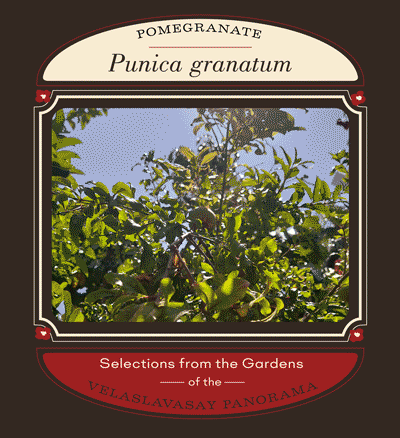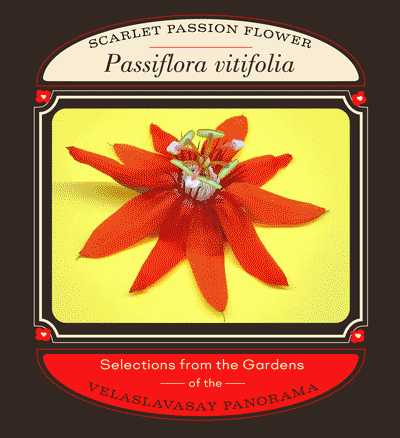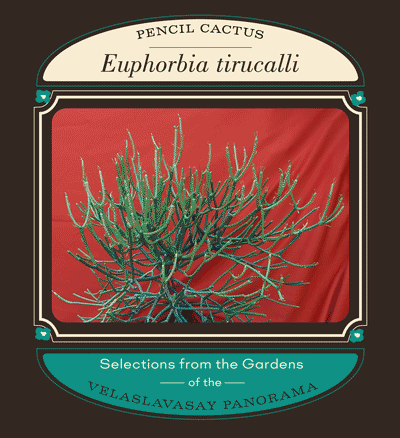Introducing The Pencil Cactus, Pomegranate, Passion Flower & Film-In-Residence
Film-In-Residence: A series of casual film viewings, accompanied by a self-guided tour of the exhibits at the Velaslavasay Panorama.Every Saturday June 25th - July 16th, 2022
3:30 pm - 5:30 pm"But far more interesting, it seemed to me, than our love of the past, which is all too frequently a kind of air-brushed fantasy of former elegance, is the past’s unrequited love of the future, that deep desire for deliverance that has not yet been met."
-Unrequited Love, Gregory Dart
Loosely based on the essay/memoir of the same title written by Gregory Dart, Unrequited Love (2006) is a film by Chris Petit that recounts a tale of stalking in the early 21st century and transforms it into a tech-driven daydream on surveillance, obsession, filmmaking, literature and the modern city.
Unrequited LoveDirected by Chris Petit
Written by Chris Petit & Gregory Dart
Stars Gregory Dart, Rebecca E Marshall, Vibeche Standal
2006, 1h 17m, format: digitalSaturdays: June 25th, July 2nd, July 9th, July 16th, 2022
Doors Open: 3:30 p.m.
Tour the Exhibits: 3:30 - 4:00 p.m.
Screening: 4:00 - 5:30 p.m.
$10 General / $5 VPESSELECTIONS FROM THE GARDENS OF THE VELASLAVASAY PANORAMAPOMEGRANATE
Punica granatum—known as the pomegranate, nur, granada, anaar, nar—is commonly grown in the Middle East, Mediterranean, and Himalayan regions. The plant has a long history of herbal medicinal use dating back 3,000 years. The stem and root bark are used to get rid of tapeworms as the plant contains “pelletierines” which are a type of alkaloid that paralyzes tapeworms that can then be coupled with a laxative to expel the tapeworm.The southeastern areas of the United States do not have a dependable fruiting of the pomegranate due to the poor pollination and humidity, so most of the US commercial production is in the San Joaquin Valley of California. Holding a strong place in mythological stories throughout time, it has been hypothesized that the “Forbidden Fruit” in the Garden of Eden was a pomegranate.
SCARLET PASSION FLOWERPassiflora vitifolia—known as the Scarlet Passion Flower—is a species of the passion flower that is a bright crimson color with glossy deep green leaves. It is native to Central America as well as northwestern South America. The genus Passiflora contains over 500 species, many of which provide delicious fruit. The passion fruit that is most commonly eaten is either purple, yellow, or a hybrid of the two, but it also produces small berries that are yellow-green with edible pulp, which ripens to the taste of sour strawberries. Just like how people love to eat passion fruit, butterflies love to lay their eggs on the vines and caterpillars love to eat the leaves of this passion flower.When Spanish missionaries first encountered this vine in South America, they saw a symbolic connection between the anatomy of the flower’s blossom and the life of Jesus Christ and named it after his “Passion” —i.e. suffering and death. The three pointed stigma (sticky center) represented the nails that affixed Jesus to the cross, the five anthers (stamen containing pollen) represented his sacred wounds, the tendrils of the vine represented the whips used in his flagellation, and the flower’s frilly filaments represented Christ’s Crown of Thorns. Other religions and spiritual traditions have found symbolic inspiration in this flower of curiously detailed beauty.
PENCIL CACTUSEuphorbia tirucalli is native to Ethiopia, Tropical Africa, India, and Indonesia, being colloquially known as “Pencil Cactus,” “Indian Tree Spurge,” “Naked Lady,” and “Milk Bush.” The genus Euphorbia was likely named in reverence to Euphorbus, physician to the King of Mauretania. The plant has many potential medicinal uses as the Malayalam Indian name, tirucalli, translates to “good” and “medicinal plant qualities.”However it has very toxic sap that causes severe irritation and a burning sensation if it comes into contact with the skin. It also causes temporary blindness if in the eye and can be poisonous if ingested. A productive survivalist, the “Pencil Tree” produces vigorous growth even in malnourished soil and extremely dry climates.
VELASLAVASAY PANORAMA
1122 West 24th Street
Los Angeles, CA 90007
www.panoramaonview.org




